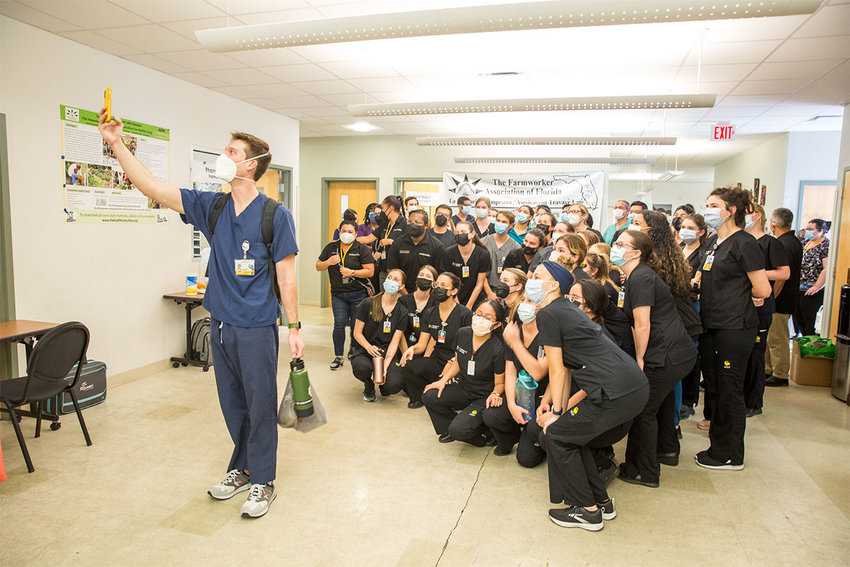Students from various health-related programs are once again teaming up to provide health screenings and resources to a population of underserved farmworkers in Apopka. By working together, students learn what it means to put the patient at the center of care and to rely on various health professionals to bring their area of expertise to facilitate a more comprehensive approach to wellness.
The Apopka Farmworkers Clinic had paused, reduced capacity, and transitioned services to virtual care due to concerns about COVID-19 transmission. The clinic reopened at full capacity on March 31st and will continue to provide quarterly services. The clinic is run by student and faculty volunteers from various health disciplines to improve the health and wellness of this underserved population. Volunteers from UCF’s programs in nursing, physical therapy, medicine, and social work, as well as students from the UF pharmacology program, were available to screen patients and offer guidance and resources to patients.
“We have been running the Apopka clinic consistently since 2016. And although the last two years we had to alter the way we engaged with patients, we were still able to help,” says Heather Peralta, a faculty member from the UCF College of Nursing who has been spearheading this volunteer effort since its inception.
Students gain valuable skills in patient intake, triage, and communication. They help patients of all ages with a wide variety of health concerns. Most of the patients seen in the clinic are either uninsured or underinsured, making it cost-prohibitive for them to seek traditional medical care. Whether it is a cut that hasn’t healed, or pain in their elbow, students and faculty work within their respective scopes of practice to best assist patients and refer them to additional services.
Sometimes, patients need support for the social, financial, or emotional impacts they are experiencing, which is why social workers from the UCF School of Social Work are at each event. They help connect patients to programs and services in the community that contribute to their overall wellness.
“What we have built in this clinic is a holistic approach to healthcare,” says Peralta. “It is not only advantageous for our students to learn alongside students from other disciplines, but also for patients. It is extremely unique to be in one room and has so many different healthcare providers ready to help you. It’s almost like a little bit of magic — how impactful this teamwork is.”








Comments
No comments on this item Please log in to comment by clicking here